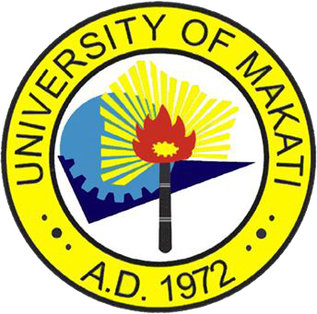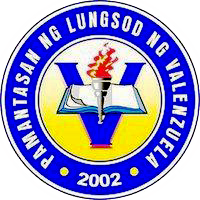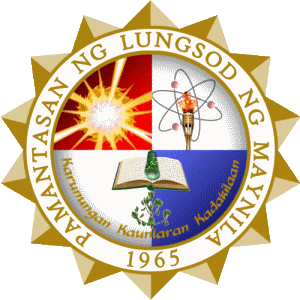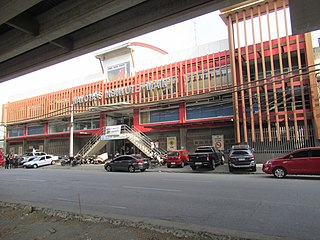Related Research Articles

Muntinlupa, officially the City of Muntinlupa, is a 1st class highly urbanized city in the National Capital Region of the Philippines. According to the 2020 census, it has a population of 543,445 people.

The District Colleges of the Pamantasan ng Lungsod ng Maynila was established in 2001 through the Memorandum of Agreement (MOA) between the Manila Mayor, the Department of Education Secretary, the PLM President, and the Superintendent of the Division of City Schools-Manila.

The Open University of the Pamantasan ng Lungsod ng Maynila (PLM) or University of the City of Manila headquartered at the Gusaling Don Pepe Atienza at Intramuros, Manila, has operated a continuing education program for working adults and professionals in its partner institutions and agencies in and out of the country. It is designed to provide higher education and improved qualifications to individuals who are unable to take advantage of traditional modes of education because of personal and professional responsibilities. Open University offers undergraduate and postgraduate degree programs.

Edgardo Migriño Chatto, more commonly known as Edgar Chatto, is a Filipino lawyer and politician who is currently the Representative of the 1st Legislative District of Bohol since 2019. He previously served in that position from 2001 to 2010.
Pamantasan is a Filipino word, which translates to university in the English language. Several local universities in the Philippines are called Pamantasan.

The Eulogio "Amang" Rodriguez Institute of Science and Technology is a public college in Santa Mesa, Manila in the Philippines. It was named after Eulogio Rodriguez, one of the longest serving senators in the country.
The Division of City Schools – Manila, or simply the DCS-Manila, is a division under the supervision of the Department of Education. It also refers to the three-tier public education system in Manila, Philippines.
The Pamantasan ng Lungsod ng Maynila may refer to different educational institutions, such as:

Pamantasan ng Lungsod ng Muntinlupa (PLMun) is a local university in the Philippines. It is one of the two public tertiary education institution located in the City of Muntinlupa, the other one being Colegio de Muntinlupa.

The University of Makati, commonly referred to as UMak, is a public, non-sectarian higher education institution in Taguig, Philippines owned and operated by the City Government of Makati. It was founded in 1972 by the Makati government as the Makati Polytechnic Community College by virtue of Municipal Resolution No. 242 Ordinance No. 64.

Pamantasan ng Lungsod ng Valenzuela, also referred to by its acronym PLV is a local government unit-owned public university located in Valenzuela City, Metro Manila, Philippines. PLV is a member of the Association of Local Colleges and Universities.

The Pamantasan ng Lungsod ng Maynila (PLM), also officially as the University of the City of Manila, is a municipal public university in Intramuros, Manila, Philippines. It is funded by the city government of Manila. The university was established on June 19, 1965, and opened on July 17, 1967, to 556 scholars, all coming from the top ten percent of graduates of Manila's public high schools.

Colegio de Montalban (CdM) is a government-funded university in Kasiglahan Village, Rodriguez, Rizal, Philippines. It was established on September 25, 2003 by virtue of Municipal Ordinance No. 03-24, and approved by the Sangguniang Bayan ng Rodriguez to provide vocational-technical and higher education to help alleviate poverty.
Higher education in the Philippines is offered through various degree programs by colleges and universities—also known as higher education institutions (HEIs). These HEIs are administered and regulated by the Commission on Higher Education (CHED).

Quezon City University (QCU), formerly known as Quezon City Polytechnic University (QCPU), is a city government-funded university in Quezon City, Philippines. It was established on March 1, 1994, as the Quezon City Polytechnic, offering technical and vocational courses. It was renamed as Quezon City Polytechnic University when it was elevated into university status in 2001. Twenty years later in 2021, QCPU was renamed Quezon City University.
The College of Law of the Pamantasan ng Lungsod ng Maynila (PLM) in Manila, Philippines is one of the two Professional schools of the University. Its current dean is Ernesto P. Maceda Jr., former Vice Mayor and City Councilor of Manila. It is located in Gusaling Katipunan.
City University of Pasay, commonly abbreviated as CUPasay, is a city government-controlled, public university in Pasadeña St., F.B. Harrison, Pasay.
The Universidad de San Ignacio was a university in the city of Manila which existed during the Spanish colonial era in the Philippines. It was founded in 1590 and is one of the earliest educational institutions built by Europeans in East Asia when it was established by Spanish Jesuits headed by Fr. Antonio Sedeño, S.J. The school ceased its existence following the expulsion of the Jesuits in the archipelago in 1768.

The Division of City Schools – Navotas or simply the DCS-Navotas is a division under the supervision of the Department of Education. It also refers to the three-tier public education system in Navotas, the Philippines.

The Universal Access to Quality Tertiary Education Act, officially designated as Republic Act 10931, is a Philippine law that institutionalizes free tuition and exemption from other fees in state universities and colleges (SUCs), and local universities and colleges (LUCs) in the Philippines. The law also foresees subsidies for private higher education institutions. It is intended to give underprivileged Filipino students a better chance to earn a college degree.
References
- 1 2 3 4 5 Danao, Dr. Carolina P. (2005-02-20). "The medium-term higher education development plan and the local colleges and universities". Manila Bulletin. Archived from the original on 2008-10-03.
- ↑ Miguel, Miguel G. (2004-06-15). "Pamantasan ng Lungsod ng Marikina celebrates 39th founding anniversary". Manila Bulletin.
It is tuition-free and funded by the City of Manila to offer tertiary education most especially to the disadvantaged but deserving students.